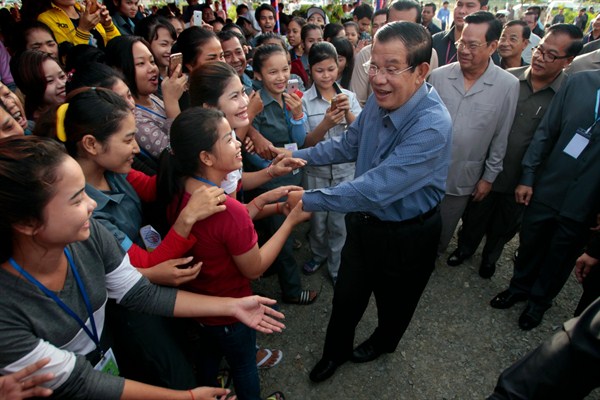In the run-up to Cambodia’s national elections next month, long-ruling Prime Minister Hun Sen, in power since 1985, has taken no chances of a political shocker similar to the opposition win in nearby Malaysia in early May. To ensure that he and his party triumph again, Hun Sen has in the past year overseen the dissolution of the major opposition party, the Cambodia National Rescue Party, or CNRP; harassed many opposition politicians into exile or tossed them in jail; and torn apart a vibrant and independent Cambodian media.
Hun Sen and the ruling Cambodian People’s Party, or CPP, will now run essentially unopposed in the elections on July 29. Many supporters of the opposition, which almost won the last national elections in 2013, when the CPP got its lowest share of the vote in more than a decade, probably will not vote. In a preview of next month, the CPP dominated elections for Cambodia’s upper house of Parliament held in February, after most of the opposition supporters who could have voted were stripped of their franchise. One of the opposition’s two main leaders, Sam Rainsy, who is in exile, has called on Cambodians to boycott the elections, although the Cambodian government has said that it will prosecute people who try to mobilize anything like that.
There is, then, little question that Hun Sen and his party will triumph in an election that will be neither free nor fair, and which regional observers and the European Union have already cast doubt on and refused to support. The bigger question, then, is what happens after that victory, which could leave the opposition seething, result in an even more authoritarian state, and still offer no clear signs about who comes after Hun Sen, the world’s longest-serving prime minister and now the longest-ruling non-royal leader in Asia, who keeps tacking on years.

